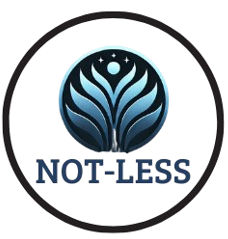I hate the word “childless”. It makes me feel less and not whole. “Childless” weighs on me. To me, it implies that I decided my own fate and that I did not want to have a child. I have a lot of emotions around it. Like Kim Catrall, it makes me feel inferior to those who have children.
What It Means to Redefine the Language
I don’t want to be identified as being less, having less, or wanting less. It does not apply to me. And, I am certain, it does not apply to a lot of people who have been in my shoes.
I did not choose to be “childless.” Fate, circumstances, the universe—whatever you want to call it—has led me to not having a natural-born child. I am also not “child-free by choice.” I am not one of those people who decided not to have a child, like my ex-husband. This is why I named this blog “Not Less.”
Empowering Alternatives for “Childless”
“Child-free by fate” or “Child-free by circumstance” while may not be perfect phrases, I feel like they are more empowering alternatives. To me, they imply that I don’t have a natural-born child, and it wasn’t my decision. That makes me feel a little better and I can live with that.
But I am also a “non-bio parent.” I like this term a lot. For me, it means that I am a parent (a stepmom), but they are not my biological children. I like this term because it can apply to anyone, regardless of gender, who does not have a natural-born child. For example, a gay couple may have a child, and one or both parents may not be biologically related to that child. The term fits, and some states are keeping up with this reality.
My point is that “childless” is so outdated. It’s demeaning. We need to find better alternatives—terms that are inclusive, descriptive, and empowering.

